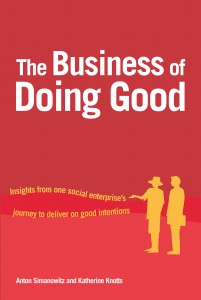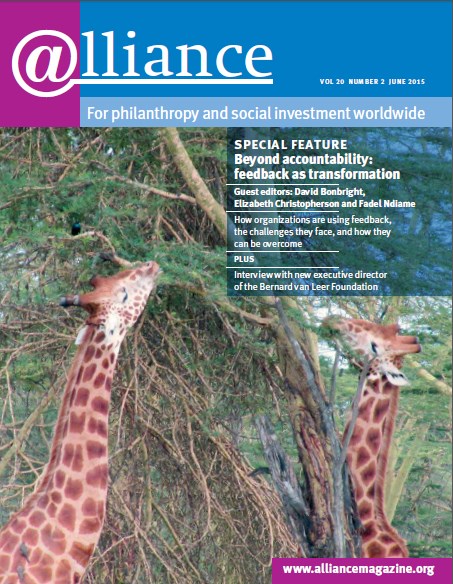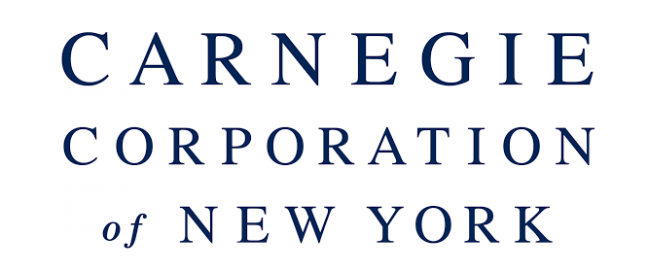Reviewed by Harvey Koh
I have to confess to being more than a little sceptical as I picked up this book. The subtitle, Insights from one social enterprise’s journey to deliver on good intentions, worried me. It seemed unlikely that there would be enough to be learned from one Cambodian microfinance enterprise to fill an entire book. Possibilities ran through my mind as I turned the first few pages. Was it a promotional tract for AMK, the enterprise whose story it promised to tell? Or might it be a hagiography of AMK’s leaders, written to elevate them into the pantheon of internationally feted social entrepreneurs?
 Having now read the book, I am happy to report that it is neither of those things. Instead, it is a thoughtful reflection on the far-from-straightforward business of running and growing an enterprise for both social impact and financial return. It is packed with narrative detail: the stories take us from AMK’s board meetings in Phnom Penh to the myriad local branches in remote hinterlands, from village loan group meetings into the homes of the impoverished families whose lives the company hopes to improve. Refreshingly, AMK’s problems and mistakes are candidly recounted – though it helps of course that the organization always appears to come through them successfully.
Having now read the book, I am happy to report that it is neither of those things. Instead, it is a thoughtful reflection on the far-from-straightforward business of running and growing an enterprise for both social impact and financial return. It is packed with narrative detail: the stories take us from AMK’s board meetings in Phnom Penh to the myriad local branches in remote hinterlands, from village loan group meetings into the homes of the impoverished families whose lives the company hopes to improve. Refreshingly, AMK’s problems and mistakes are candidly recounted – though it helps of course that the organization always appears to come through them successfully.
The constant endeavour to ensure that noble intentions are translated into actual benefit for the people we care about – and, equally, that any unintended harms are mitigated – is the thread that runs through the book.
Most of the lessons it offers are by no means new, but they bear repeating because they are so often forgotten. Abandon all notion of the ‘average customer’ and instead see the distinct customer segments that comprise the market. Deeply understand both your customers’ needs and their wants (and avoid conflating the two). Continually tailor and adapt your products to those needs and wants, instead of blindly copying what others offer. Gather data systematically and use it routinely to support decision making.
The book also describes AMK’s efforts to continually balance financial return and social impact. In particular, it highlights the role of the board-level Social Performance Committee in helping the business to ‘ask good questions’ and maintain a strong focus on its mission. The authors make clear that the point of the committee is not to prove AMK’s impact to the outside world (as so often ends up being the case with these groups) but ‘to help make the organisation as good as it could be’. This focus on actual learning and improvement with respect to achieving the mission, the inclusion of external experts in the group, and the deep commitment of both management and board members to the process, are all features very much worthy of imitation.
My only, relatively minor issue with this book is that it hasn’t quite decided if it is a narrative of AMK’s journey, a sort of company biography, or an instructional work offering clear lessons to newer social entrepreneurs. As a result, it somewhat awkwardly straddles the two, and reading it is not as easy as it could be.
That said, I would recommend this book especially to newer social entrepreneurs. In a world that is rightly getting more excited about the possibility of ‘doing good and doing well’ it reminds us that achieving success on both fronts simultaneously is a hard-won thing, while offering practical ideas and inspiration to help more of us get there.
Harvey Koh is a managing director at FSG and co-leads their Inclusive Markets practice, based in Mumbai. Twitter @HarveyKoh
About the book
Published by Practical Action Publishing
Price £12.95
ISBN 9781853398650
To order http://practicalaction.org/publishing







Comments (0)